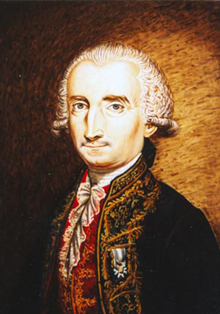Frédéric Mertens de Wilmars
Lecturer and Coordinator of the Degree in International Relations / Universidad Europea de Valencia
5 July was the date of Algeria’s independence following the Evian Accords of 18 March 1962, but it was also the date of the massacre of the Europeans in Oran. In fact, a few hours before the proclamation of Algeria’s independence, gunfire broke out in the heart of the city, where thousands of Algerians were celebrating the independence of their people. In the aftermath, many armed individuals attacked the Europeans present, causing the death of many of them. Thus, this 60th anniversary of independence, after 132 years of French colonisation, continues to mark the history of Algeria and its relationship with France.
The wound remains sensitive, but the will to strengthen relations is present on the part of Emmanuel Macron, author of a letter addressed to his Algerian counterpart, Abdelmadjid Tebboune. On the occasion of the 60th anniversary of Algeria’s independence, the French president sent a letter to the Algerian people, reiterating his commitment to pursue his approach of acknowledging the truth and reconciling the memory of the Algerian and French peoples.
Although France and Algeria have experienced several difficult diplomatic episodes since Algerian independence, relations have been warming for several months, and the heads of state of the two countries declared on 18 June that they wanted to deepen their relations.
How can this new warming of Franco-Algerian relations be understood? As always, in the field of international relations, several interpretations are possible. We should remember that this is a period in which many countries are revisiting their past in order to underline or reinforce friendly ties with other countries while pursuing a certain geopolitical objective (military, political, economic or ideological). Thus, after Algeria’s independence, the USSR expressed its support for Algiers and relations between the two countries remained at a high level, even after the demise of the Soviet empire.
However, in the current context of the war in Ukraine and the European boycott of Russian gas, Russian Foreign Minister Sergei Lavrov conveyed an official invitation from Vladimir Putin to his Algerian counterpart, Abdelmadjid Tebboune, on 10 May in Algiers to pay an official visit to Moscow. Referring to bilateral relations, Sergei Lavrov stressed that Russia and Algeria have long-standing friendly and sincere relations and that the two countries are celebrating their 60th anniversary of diplomatic relations this year, which corresponds to the proclamation of Algeria’s independence. With his Algerian counterpart, he said that interest has been shown in the development of these relations at the political, economic and commercial levels, as well as in military, cultural and scientific cooperation. Russia intends to renew its agreements, announcing the interest of Russian companies in establishing partnerships with Algerian operators in the fields of energy and natural resources (Algeria, the leading exporter of gas, supplies around 11% of the gas consumed in Europe, compared to 47% for Russia). In addition, on 18 April, Vladimir Putin met with Tebboune to discuss coordination within OPEC and the situation in Ukraine.
Several countries, including France, seeking to reduce their dependence on Russian supplies since Russia’s military offensive in Ukraine, have turned to Algeria, a Moscow ally but one that has very limited capacity to increase its exports.
For Paris, it is about gaining investment ground on Algerian soil, as Moscow increasingly loses its economic leverage abroad due to economic sanctions and its war effort. But for Macron it is also about countering China, which has become Algeria’s largest trading partner. Algeria has also moved closer to Turkey as it develops its military partnership with Russia.
A priori, the situation is virtuous for Algeria. The rise in hydrocarbon prices due to the war in Ukraine is mechanically bolstering the coffers of a country with the third largest oil reserves in Africa (behind Libya and Nigeria). The breath of oxygen offered by these prospective revenues – assessed by the International Monetary Fund (IMF) at $58 billion in 2022 (or €54 billion) – comes as a relief to the Algerian government at a time when the regime is trying to restore its base after the turbulence of the Hirak protest movement in 2019 and 2020.
Moreover, Europe’s search for alternatives to Russian gas raises Algeria’s strategic profile on the regional stage. Increasingly courted, Algeria seeks to project itself as a ‘reliable’ partner, according to official rhetoric, especially with Italy, with which it ostentatiously displays friendship. Algeria, which today is the source of 11 per cent of Europe’s gas imports, is destined to expand its status as a long-term supplier.
So many reasons for the French to once again reach out to the Algerians and give new impetus to relations between the two countries at a time when, as in the Cold War, the international scene has become a huge chessboard where states count each other and define their positions.
© All rights reserved





